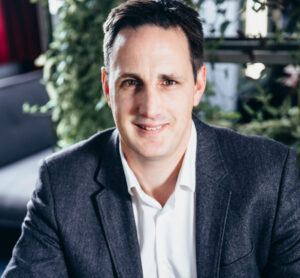If you’re a data scientist looking for a new job, the chances are that you have been inundated with calls from recruiters and hiring managers. Your skills are in big demand. Organisations across every sector are looking to leverage the advantage that their data can afford them.
While your skills are very much in demand, walking into a new data science job isn’t a given. You’ll still be up against some stiff competition!

Here are some tips about how to prepare for your next data science interview.
Know what’s coming.
What your interviewer requires of you is very much dependent upon the stage of interview you’ll be attending. In the early stages of the process, you probably won’t need to be as detailed about your technical skills or your experience. If this is you, then you should be prepared to talk in quite broad terms about your career journey so far.
Try to think about some career highlights that you can draw on. Did you do a piece of work of which you were particularly proud? What did it help achieve, and what was the impact on the organisation?
However, if you’ve progressed further into the process, you will need to evidence your tech skills. Your interviewer will want to know detail about your sector experience, technical skills, and your ability to solve problems using data.
Your interviewer’s approach may look different from company to company. However, it is likely to be a process of technical questions and sometimes, coding tests.
Either way, you’ll need to be prepared.

How to prepare for your data science interview.
A great interview begins with significant preparation.
You should
- Research the organisation thoroughly. Read industry-focussed literature, follow them and significant individuals on social media, and revise their corporate website.
- Research key trends in the organisation’s industry sector.
- Find out who the organisation’s competitors are, discover what they are doing and how this may affect the work you will be doing.
These things will help you uncover what you’ll be doing and what will be expected of you. Armed with this information, you’ll be able to know the skills you’ll need to focus on in your interview.

Prove your data science skills.
To prove to your interviewer that you’re the right person for the job, you should be ready for the following.
Programming.
- Highlight your technical skills and provide examples of how you’ve used them.
- You have probably listed the skills you are proficient in on your CV, so think about instances where you have employed them.
Data handling and SQL.
- Data scientist jobs normally require handling huge data sets.
- Give your interviewer examples of occasions where you’ve done this in the past.
- Be prepared for a technical brief here. You might even be tested with a practical exercise.

Maths and statistics.
- If you are new to the field of data science, and you are low on commercial experience, be prepared to discuss your maths ability and your former use of statistics.
Machine Learning Algorithms.
- Be well versed in basic machine learning algorithms that are useful in specific problems.

Projects.
Think about your past projects (either at work or as an enthusiast) and be prepared to discuss the problems you’ve solved.
For a few, think about answers to the following questions.
- What did I do?
- What process did I use?
- What was the result?
- Was it successful and how did I measure the success of the project?
If you can, and you aren’t breaching any confidentiality agreements, take along a portfolio of these projects you can showcase in an interview.

From good to great.
What separates a good interview from a great one?
The answer lies in your ability to really communicate your suitability for the role, and company. It is not enough just to show technical ability. Your interviewer wants to know you are the right hire, and this includes demonstrating that you have the desire to make a real impact.
It’s likely that your interviewer will give you a chance to ask questions at the end of your data science interview. You should take this as an invitation to demonstrate your interest in what you can help the company achieve.
You may like to spark up a conversation around this by using these starters.
- How new is this role?
- How will my work fit into the organisation’s strategy?
- How will my work be informing the organisation?
- How has the organisation used the work of the data scientists in the past? How has this information proved useful?

Are you looking for a new data science job? We can help. Reach out to us today to chat about our data jobs.
Or perhaps you are considering a career in data science? In our CV Essentials mini-series we cover data science here.





